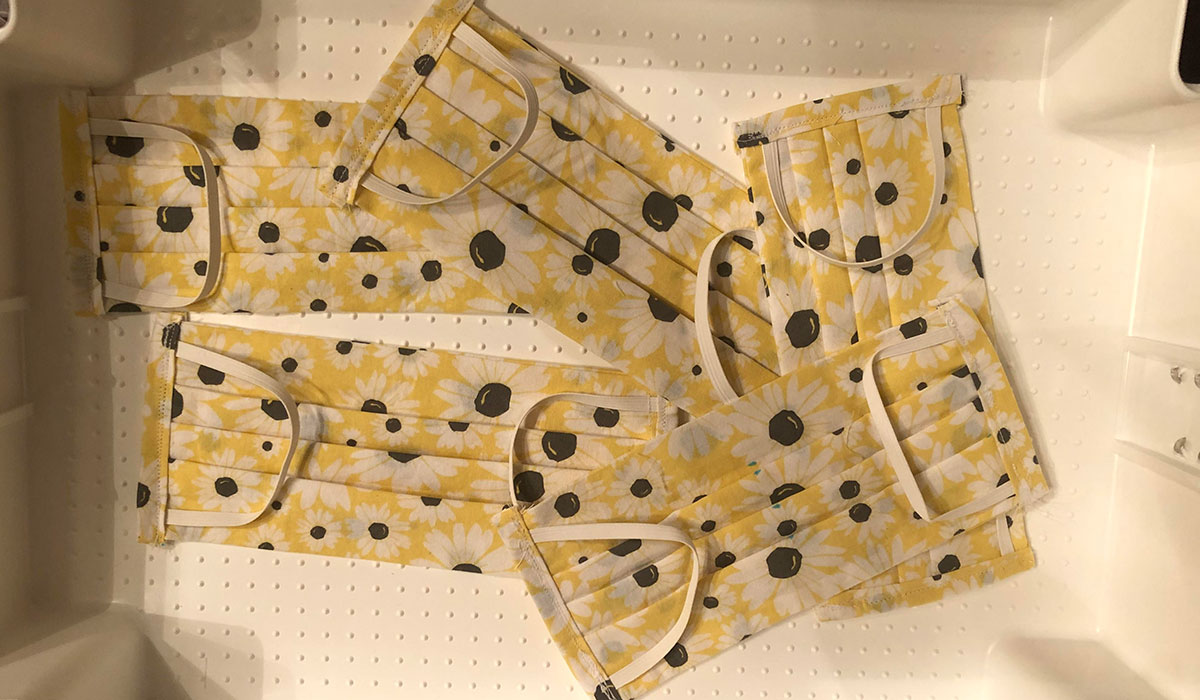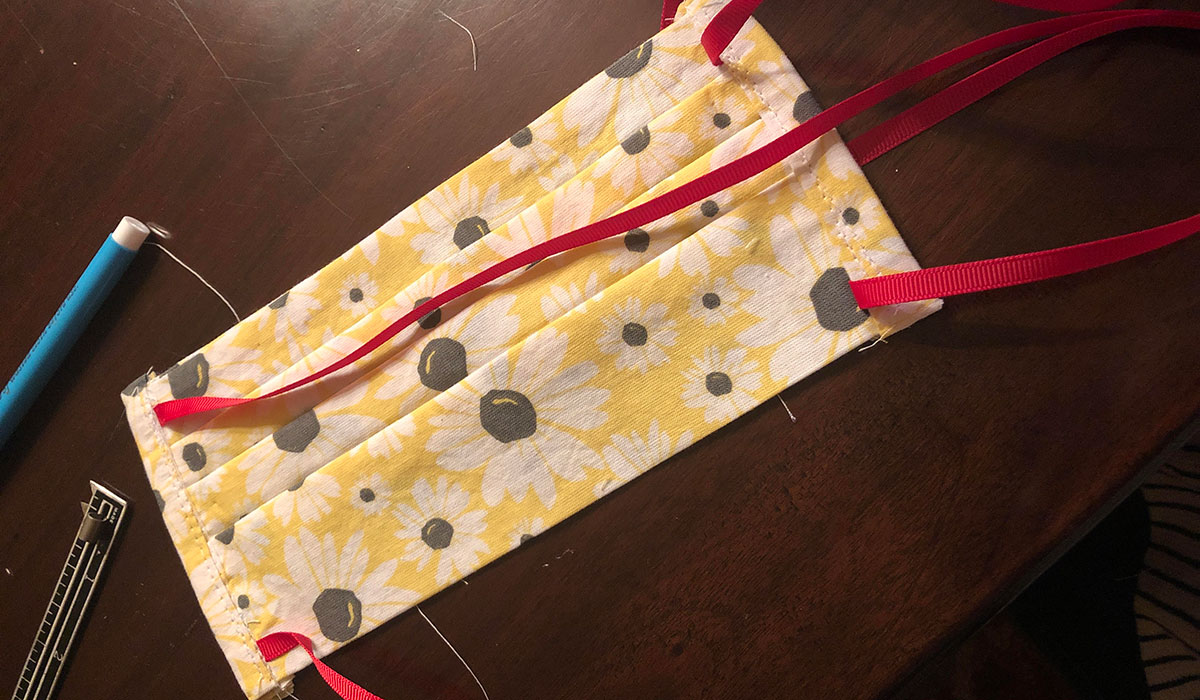

A group of students from the Conway School of Nursing is working to sew fabric masks to be donated to nursing alumni working on the front lines to treat patients with COVID-19.
The effort was organized by sophomore nursing major Brooke Lackey, who was inspired after hearing about the critical shortages of protective personal equipment (PPE) in medical clinics and hospitals. After reading articles about how to make the fabric masks, Lackey decided it would be a good way to use her skills to help nurses.
With the help of Clinical Instructor Jane Taylor, Lackey sent a message to fellow students asking for sewing help or donations of mask materials. Taylor has also forwarded the message to nursing school alumni to connect Lackey with nurses in the field who could benefit from the masks.
 “Fabric masks aren’t as effective as N95 masks, but some people are wearing them over N95 masks to help them last longer,” Lackey says. “I’m not a very experienced sewer, but I’ve made 15 of them so far and I’ve been juggling that in with my homework.”
“Fabric masks aren’t as effective as N95 masks, but some people are wearing them over N95 masks to help them last longer,” Lackey says. “I’m not a very experienced sewer, but I’ve made 15 of them so far and I’ve been juggling that in with my homework.”
One of the students involved in the project is Monalisa Mendoza, a junior nursing major. Mendoza said she began sewing masks a few weeks ago after speaking with her sister, who works in the emergency department at Medstar Washington Hospital Center.
“She told me about the shortages they’ve been having,” Mendoza says. “I’ve always liked to sew and I had the extra fabric around, so I had the idea to help.”
So far, Mendoza says she has made 40 masks to donate to her sister and her team, as well as to CatholicU alumni.
“As a nursing student, I feel like this is the least we can do to help at the moment because we can’t physically be there and help out,” she says.
Watching the work of nurses and other medical professionals has been inspiring for Mendoza, who plans to one day work as an ER and trauma nurse.
“This motivates me to study harder and learn as much as I can now, so that I can one day make a difference and help out,” she says.
Lackey, who hopes to work in a neonatal intensive care unit after graduation, says she has also been inspired by stories of nurses working in difficult conditions during these times.
“My aunt is an ICU nurse and she’s been posting pictures and sharing stories of nurses who are still very positive and not afraid,” Lackey says. “It’s nice that we are able to help in a different way and that we can focus on what we can do now rather than what we wish we could do in the future.”
As the Costume Shop Manager for the Rome School of Music, Drama, and Art, Julie Cray Leong is used to teaching students practical creative skills like sewing, costume construction, and theory of design as part of the University’s Introduction to Technical Theatre course. Since the University’s switch to online learning last month, Leong has been taping “how-to-sew” videos for students.
In an effort to help address the critical PPE shortage faced by many medical professionals today, Leong created an instructional video with directions for sewing mask covers for N95 masks. Since then, she says she’s received an “outpouring of responses” from Costume Shop alums, students, and other members of the Rome School community, sharing tips and tricks for construction methods. The Department of Drama has donated 40 of the handmade masks to the University’s Office of Environmental Health and Safety.
“The instructions I used were passed along from a family friend and I attempted to use items stitchers typically have in their sewing baskets,” Leong says. “My hope in posting this video is one that I always tell my students: there are 10 different ways to sew something and arrive at the same conclusion. The point is just to attempt the project. Everyone can learn how to sew and now is the perfect time.”